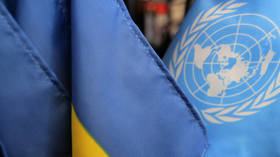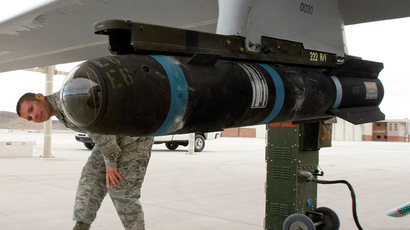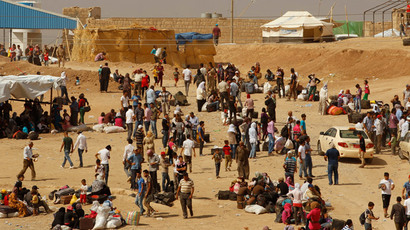Obama may decide on deployment of ground troops in Iraq within days
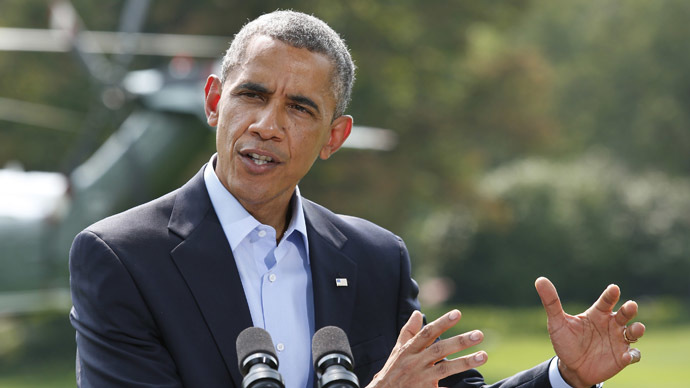
A senior White House advisor announced on Wednesday that United States President Barack Obama may soon send ground troops to Iraq in order to try to rescue tens of thousands of displaced Yezidis trapped on a mountain there.
Ben Rhodes, a deputy national security adviser for the Obama administration, said during a press conference early Wednesday that the White House is considering further options regarding the crisis in Iraq, where militants with the Islamic State, formerly ISIS, have forced waves of religious Yezidis to take refuge on Sinjar mountain in northern Iraq.
On Wednesday evening, however, Secretary of Defense Chuck Hagel said the chances of the United States intervening directly with a rescue mission are "far less likely" following a first-hand evaluation made by American Special Forces. The Department of Defense confirmed the statement, but added that humanitarian assistance will continue going forward.
The announcement followed the revelation that more than one dozen US troops spent the past 24 hours above Sinjar in order to assess whether or not an evacuation mission would be necessary to free those stuck on the mountain. Pentagon Press Secretary John Kirby pointed to the “work of our troops and USAID,” which helped in determining a mission to be unnecessary.
The US has already been delivering food and water to the trapped Yezidis, Rhodes said from a presser in Massachusetts where Pres. Obama is vacationing, but further action must be taken immediately.
“We don’t believe it’s sustainable to just have, you know, permanent airdrops to this population on the mountain,” Rhodes said. “Some of them have been able to escape but, again, we want to get options in place to move them to a safer place.”
"There needs to be a lasting solution that gets that population to a safe space where they can receive more permanent assistance," he told reporters.
Rhodes reiterated that the White House remains adamant about refusing to put combat forces in Iraq, and said once more that the administration is only weighing humanitarian efforts.
Already, though, the White House has indeed ordered multiple waves of military personnel to the region, with Rhodes confirming on Wednesday that 130 additional Pentagon advisers are being sent to northern Iraq. The latest round of Americans to head that way, he said, “are not going to be in a combat role in Iraq.” Their deployment, however, comes on the heels of other surges in which Pentagon advisers have been sent overseas to protect American assets.
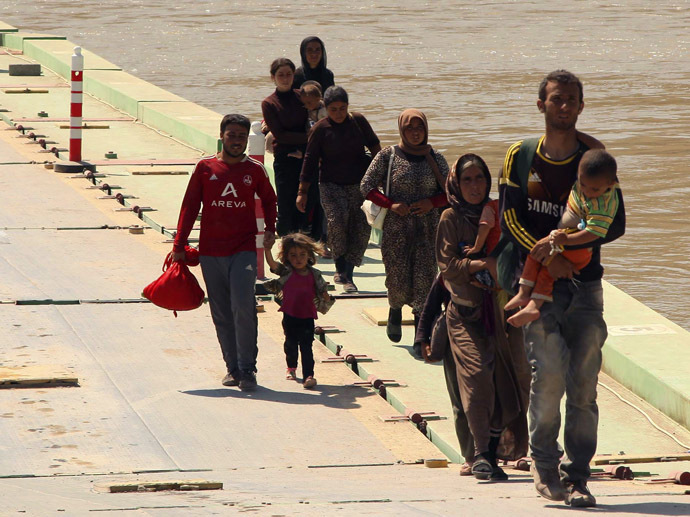
Nevertheless, Rhodes insisted that any further troops sent to the region by the president won’t be there to fight.
“What he’s ruled out is reintroducing US forces into combat on the ground in Iraq,” Rhodes said, adding that the deployment of group troops for rescue purposes was “different than reintroducing US forces in a combat role to take the fight” against the Islamic State.
“There are dangers involved in any military operation ... but [the president's] confident that we can have a limited military objective,” he added.
Last week, Pres. Obama for the first time authorized airstrikes in Iraq intended to target Islamic State militants there, and to “help forces in Iraq as they fight to break the siege at Mount Sinjar and protect the civilians trapped there.”
"We can act carefully and responsibly to prevent a potential act of genocide,” Obama said at the time.
Col. Steve Warren, a Pentagon spokesman, told the Los Angeles Times on Wednesday that several V-22 Ospreys aircraft had been repositioned near the Kurdish city of Irbil with around 130 Marines and special operations troops tasked with getting the refugees to safety.
The airstrikes that began last week, Col. Warren added, have “slowed if not stopped” the Islamic State’s military operations.



